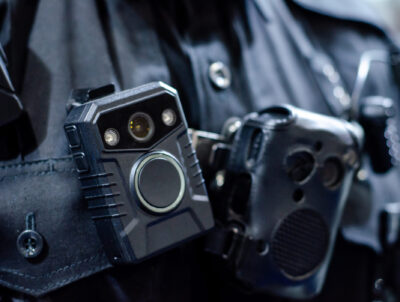 The intended purpose of police body cameras is to increase the public’s trust when it comes to police officers on duty. Police tactics have taken center stage recently, so body cameras have been employed to ensure that officers are following protocol.
The intended purpose of police body cameras is to increase the public’s trust when it comes to police officers on duty. Police tactics have taken center stage recently, so body cameras have been employed to ensure that officers are following protocol.
Body cameras can ensure transparency and accountability in our police departments. However, officers are able to turn off or mute their body cameras at any given moment, which creates a flaw in the operation of these cameras.
When Do Police Turn Their Body Cameras Turn On and Off?
South Carolina became the first state in the court to require all law enforcement agencies to wear body-worn cameras. South Carolina’s police body camera law requests agencies to create guidelines and operational procedures for body camera use, and it also sets standards for who can request and obtain the data generated by the cameras.
The act also establishes a fund to help agencies buy and maintain body camera equipment. Even with this law, departments could only implement a body camera program if they receive the necessary state funding, so this part of the law helps immensely.
There is nothing in the act that makes it illegal for law enforcement officers to edit, alter, or erase footage caught on their cameras. However, multiple bills have been introduced that attempt to prohibit and provide penalties for the intentional destruction of body camera footage that could be used in a criminal investigation or other legal action.
This act would also help make the policies and procedures more streamlined across agencies by mandating that agencies activate their cameras in a “reasonable” timeframe because this is not outlined in the act either.
Is There a Link Between Police Body Camera Use and Police Violence?
Police body cameras can be a positive accountability tool and have the potential to make police misconduct, including violence, more visible. In some cases, body camera footage has shed light on police violence that would not have been witnessed otherwise.
However, it is also important to note that even in situations where body camera footage has clearly demonstrated police violence, often such footage has not helped to hold police accountable.
If You Suspect You Have Been the Victim of Police Brutality, What Should You Do?
The first thing you should do if you have been the victim of police brutality is to get medical attention. This applies even if you are in police custody because, in the United States, the Eighth Amendment to the Constitution requires that adequate medical care be provided to people in police custody.
In addition, you should document the name, badge number, and police department of the officer who injured you as well as that of any officers who witnessed the incident. It is also important to get the names and contact details of anyone who witnessed the accident. Also document the date, time, and location of the incident and take photos of your injuries.
How Can a Lawyer Help You?
Video surveillance may also have captured what happened to you via cameras in the police car, body cameras, or surveillance videos on nearby homes or businesses. These may be strong evidence in your claim against the police. However, you will only be able to gain access to these videos if you take legal action.
A lawyer can help you provide all the relevant parties with the required notice that will prevent them legally from destroying the videos or other evidence. The team at Allen Law can ensure that all relevant evidence is properly maintained and that your legal rights are protected. Give us a call today at (843) 882-5005.

